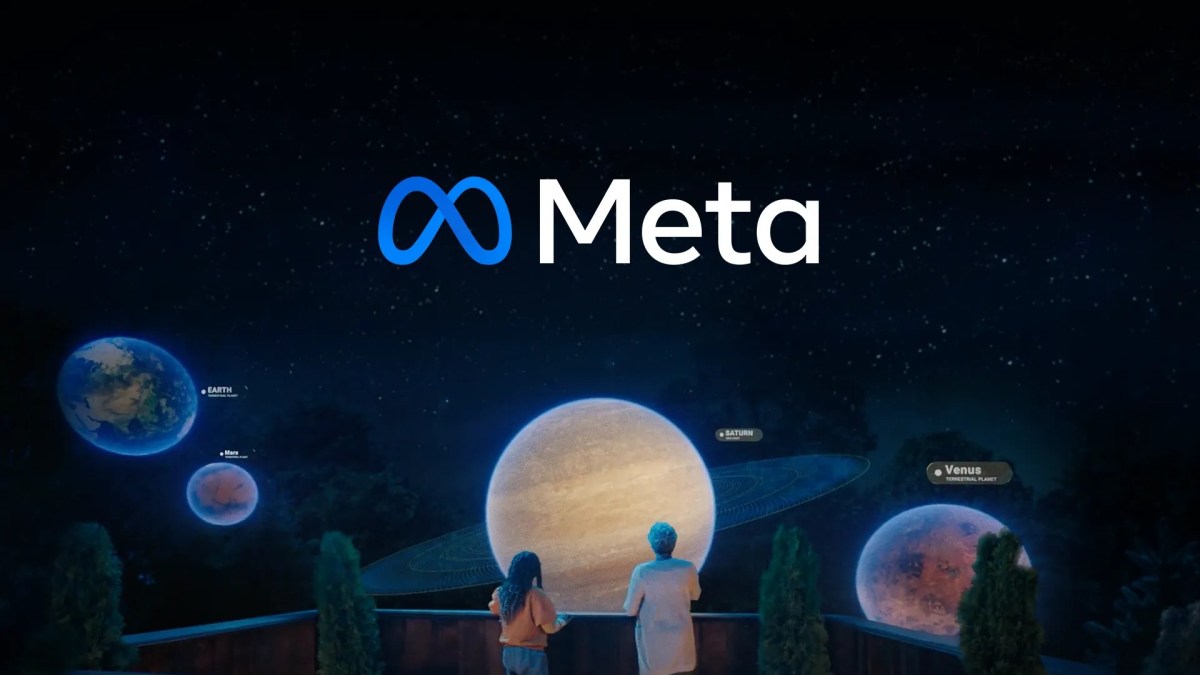If there was one thing that stood out from Mark Zuckerberg's 90-minute spiel about Facebook's rebranding as Meta, it was his misunderstanding of what meta actually means — and how that misunderstanding represents his profound inability to reflect.
The day after Meta launched, with Zuckerberg's utopian promises about the metaverse, I went on a rant about how this moment has been predicted by a library's worth of science fiction. Snow Crash, Neal Stephenson's 1992 novel, even includes a virtual environment called... wait for it... the metaverse.
What was comically tone-deaf about Zuckerberg's enthusiastic predictions to anyone even vaguely familiar with cyberpunk science fiction is that fictional depictions of futures featuring virtual reality are almost universally dystopian.
Zuckerberg's fanfare reminded me of a familiar feeling among teachers: he hasn't done (or hasn't understood) the reading.
The origin of the meta:
Numerous tech companies, including behemoths like Microsoft, are equally eager to enter the next stage of online interaction, which will almost certainly be worth trillions of dollars. These companies, however, appear to do so without pausing "to carefully consider the actual source of the metaverse,” says Merchant referring to Snow Crash, “a deeply dystopian novel about a collapsed America that is overrun by violence and poverty.”
This would be one thing if Snow Crash was a one-of-a-kind novel, but the tropes animating Stephenson's novel were well-established in the genre by cyberpunk authors before him, most notably William Gibson's Neuromancer.
Stephenson's concept of the metaverse was a refinement of Gibson's cyberspace, which was foreshadowed by Vernor Vinge's Other Plane in True Names and Philip K. Dick's Ubik's virtual afterlife for the not-quite-dead.
Dick and Vinge are unconcerned with the larger socioeconomic issues of the societies in which their virtual worlds exist. But, for the most part, cyberpunk has followed Gibson's lead, foreseeing a future of vast wealth inequality, powerful transnational corporations, and a population distracted and calmed by a steady diet of digitized misinformation and entertainment.
It's almost as if Gibson and Stephenson were on to something.
All of this contributes to Zuckerberg's glossy, relentlessly upbeat utopianism about our virtual future feeling disjointed. This is without even mentioning his blatant disregard for the fact that people are finally emerging from Zoom after a year and a half — so it might not be the best time to try to sell a new virtual space.
Because of Zuckerberg's apparent chronic inability to pause and reflect (let alone admit error), Facebook's new name is sadly ironic.
What is meant by Meta?
In his video and letter announcing the rebranding, Zuckerberg cites his classical education and claims that "meta" is derived from Greek and means "beyond."
He's not entirely wrong: the Oxford English Dictionary defines it as "beyond, above, at a higher level." However, Zuckerberg goes on to say that meta "symbolizes that there is always more to build, and there is always a next chapter to the story" — completely overlooking the way "beyond" is used here. The next line of the dictionary entry clarifies something.
"Meta-" is typically "prefixed to the name of a subject or discipline to denote another which deals with subsequent issues in the same field, or which raises questions about the nature of the original discipline and its methods, procedures, and assumptions," according to the dictionary.
To put it another way, meta's "beyond" is about moving beyond our tacit understanding of something to gain a critical and self-reflexive perspective.
As an academic who teaches and writes about contemporary literature, I am intimately familiar with the theoretical concept of "meta." But it's not as if understanding meta's basic introspective meaning is restricted to academic circles. It has long since wormed its way into conversation, making Zuckerberg's careless obliviousness all the more perplexing.
When asked, "Can we get meta about this?" The question prompts a discussion of things surrounding, informing, framing, or giving rise to the issue, rather than the issue itself.
When you hear someone leaving a movie theater exclaim, "That was so meta!" you can be fairly certain that the film you just saw was Scream or Kiss Kiss Bang Bang. While the practice of being ironically self-referential can be exhausting at times, my point is that meta is, by definition, introspective, which Zuckerberg is not.
To be meta about Meta, instead of launching into a 90-minute video promising to double down on Facebook's ostensible mission of "bringing people together," consider the fact that Facebook is a company that designs technology around people.
It may also be worth considering whether all of the internal studies claiming that Instagram is harmful to body image and Facebook facilitates atrocities and supports dictatorships are more indicative of technology shaping people's behavior.
Should that unlikely scenario occur, there are a few books that Zuckerberg might enjoy reading.



